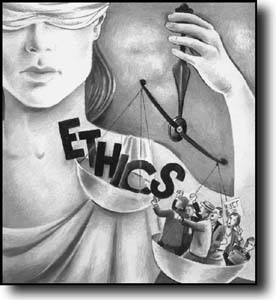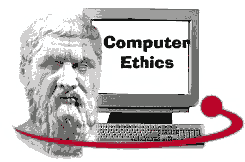The foregoing mail is a hoax and inciting racial Cy-war- an example to flamming
To:
memargonz@yahoo.comSubject: Filipinos.....*make me puke* (Art
> Bell)---
> > >As we've all come to notice, in the past few
> decades, Filipinos have
> > >begun to infest the United States like some sort
> of disease. Their
> > >extensive involvement in the U.S. Armed Forces is
> proof of the trashy
> > >kind of qualities all filipinos tend to exhibit
> on a regular basis.
> > >You can see this clearly by studying the
> attitudes and cultural Icons
> > >of most Filipino Americans. Origins of
> Pinoys/Pinays: Are they really
> > >asian?Well we've come to accept the fact the
> filipinos come from a part
> > >of the world known as South East Asia. But the
> term "Asia" is used in
> > >the wrong way. You may notice that contemporary
> Filipino Americans try
> > >very hard to associate themselves with groups
> that we know as Asian. I
> > >cannot count the number of times I have seen a
> 'Third World' Filipino try
> > >to connect themselves to the chinese or Japanese
> people. There is no
> > >connection and here's why. The Philippines is a
> Third World country.
> > >Nothing respectable has EVER been created by
> Filipino people during our
> > >entire human history. Young filipino men in
> America have become obsessed
> > >with "import racing".They have an enormously
> perverted affection for
> > >Japanese cars. It's a common phenomenon. In
> their minds, these
>
> > >filipinos somehow believe that they are asian and
> that it somehow connects
> > >them to Japanese people and japanese cars. They
> often take credit for
> > >the ingenuity of Japanese people and say how it's
> an "Asian thing".
> > >This term..."Asian thing" derived directly from
> African American slang
> > >"black thang". "It's a black thang.""It's an
> asian thang." You can see
> > >the connection. It's even funnier that, in
> Japan, Filipinos are heavily
> > >discriminated against. The only filipinos that
> can live successfully in
> > >Japan are the filipino prostitutes. But that's
> the case for most
> Filipino
> > >people no matter where they live in the world.Now
> we've come down to this
> > >fact...and it is a fact. Nothing in Filipino
> Culture can be seen as
> Asian.
> > >
> > >They have no architectural, artistic, or cultural
> influence which is in
> ANY
> > >way, asian Thinking of the great countries in
> Asia such as Japan, Korea,
> > >and China there is no way you can possibly
> connect the Philippine
> Islands.
> > >This assault by filipino americans to connect
> themselves with the great
> > >peoples of North East Asia is foul and
> disgusting.
> > >
> > >Try visiting a young filipino's web site too.
> You'll see something called
> > >the
> > >"Asian IRC Ring". It has to do with the
> chatrooms. The most horrible
> > >thing about
> > > this is that these TRASHY people are trying to
> associate themselves
> with
> > >Asia again!!
> > > People in Asia don't act like, this at all.
> > >
> > >What we are seeing here is the natural filipino
> in it's element with full
> > >access to technology and this is how they act!
> You will consistently see
> > >this behavior over and over again. Another
> interesting thing is that
> these
> > >"thirdworld" people also frequent IRC chatrooms
> such as #chinese #japan
> and
> > >#asian. They must believe that they are some how
> related racially or
> > >culturally to North Asians.
> > >
> > >But it's completely WRONG! There might have been
> some distant contact
> with
> > > China and
> > >even less with Japan during World War II, but
> these people are actually
> > >more closely
> > > related to african americans and mexican
> americans. Do the parents of
> > >these young
> > > filipinos know what's going on? Would they a
> accept this? I believe
> > >that
> > > they would
> > >and do. This is the natural "Trash" element in
> filipinos manifesting
> > >itself.
> > > Nothing good has ever come from Philippines
> and I don't believe
> anything
> > >good ever will.
> > >
> > >Recognizing your Roots (A Message to Filipinos).
> > >To all filipino people:
> > >Please recognize your ROOTS!
> > >You come from the Third World! You country is a
> disgusting and filthy
> > >place. Most people there live in poverty! Your
> culture has MUCH MORE
> > >SPANISH influence than chinese, and absolutely no
> JAPANESE influence
> > >whatsoever. People in Japan and China, do not
> act like you. They do not
> > >constantly talk about sex and they have a MUCH
> HIGHER level of RESPECT
> for
> > >each other.
> > >
> > >There is NO WAY that you can connect yourself to
> Asia other than
> location.
> > >
> > >Your culture and technological advancement does
> not even come CLOSE to
> what
>
> > > Chinese,
> > >people have done in the past and what Japanese
> and Korean people are
> doing
> > >now!
> > >Everything you do is distinctly filipino. You
> cannot take credit for
> > >Japanese cars,
> > > video games, or Hentai! It's not an "asian
> thing" it's, an "american
> > >thing".
> > >
> > >You have no concept of culture..no concept of
> asian ideas or asian
> > >philosophy!
> > > Can you demonstrate how you use Confucianism or
> Taoism in you everyday,
> > >life??
> > > You can't. And you will NEVER be able to. I
> understand that you are
> > >trying to
> > >create an identity for yourselves as young
> people... but it is NOT
> related
> > > to Asia.
> > > Your Identity is Filipino.
> > >
> > >That's all you are.
> > >Just Filipino. Think about what that means....
> > >
> > >
> > >
> > > Sincerely,
> > > Art
Sources:
http://www.awsp.com/spamming.htmlhttp://w3f.com/no-spam.htmlThe WWWeb Factor John R. Beaman
















